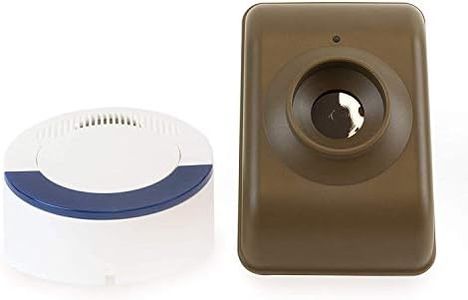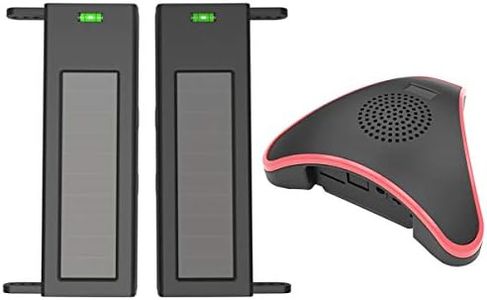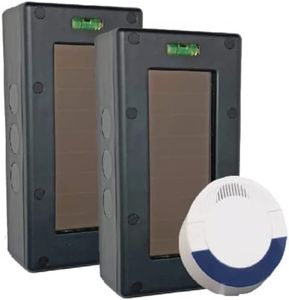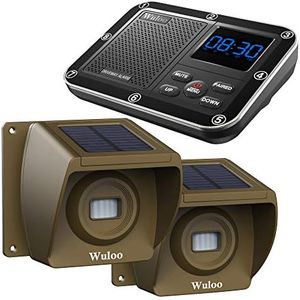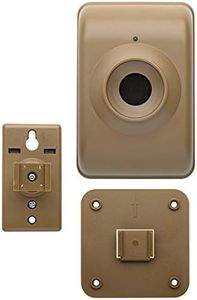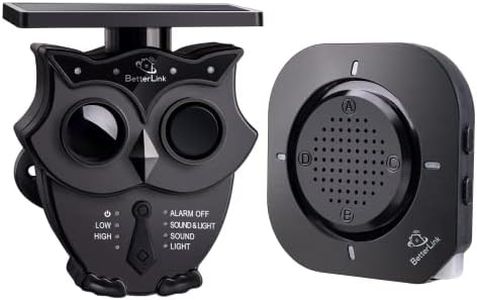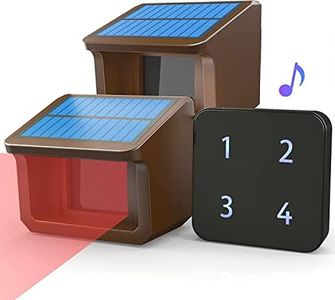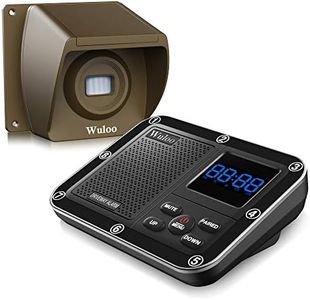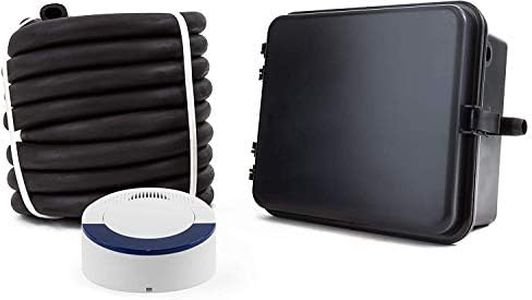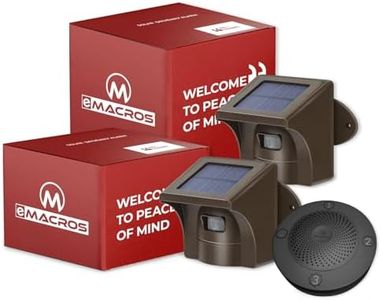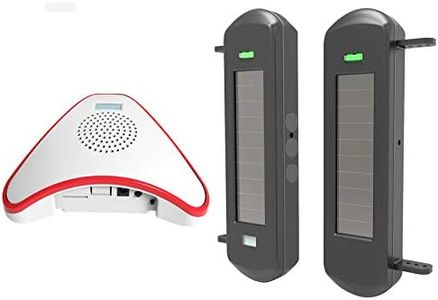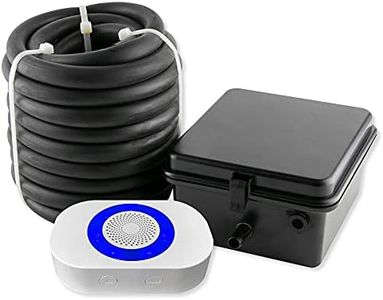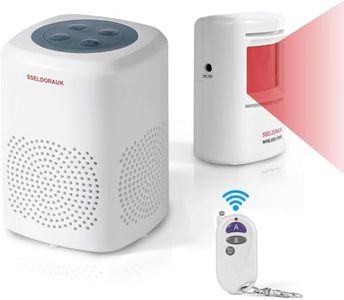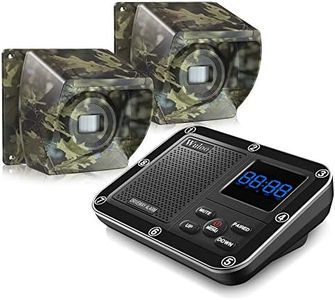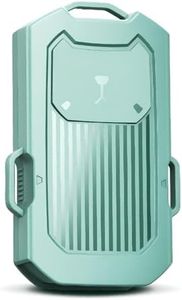We Use CookiesWe use cookies to enhance the security, performance,
functionality and for analytical and promotional activities. By continuing to browse this site you
are agreeing to our privacy policy
10 Best Driveway Alarms
From leading brands and best sellers available on the web.By clicking on a link to a third party's website, log data is shared with that third party.
Buying Guide for the Best Driveway Alarms
Choosing the right driveway alarm is about finding a balance between security, convenience, and suitability for your property. Driveway alarms help you know when someone or something enters your property by alerting you with a sound, light, or notification. Understanding how these devices work and what features are most important for your situation will help you stay secure without unnecessary complications.Detection RangeDetection range refers to how far the sensor can detect movement from its location. This is important because you want the alarm to cover the entire length of your driveway or the specific area you want to monitor. Ranges can be short (under 100 feet), medium (100-400 feet), or long (400 feet and above). If you have a small driveway or only want to cover a small entrance, a shorter range is sufficient. For long or curved driveways, or if you want to detect movement farther from your house, a medium or long-range model is best.
Type of SensorThe type of sensor used in a driveway alarm determines what triggers the alert. Common types include motion sensors, infrared (detecting body heat), and magnetic sensors (detecting metal, like cars). Motion and infrared sensors will pick up people, animals, and cars, while magnetic sensors only alert you to vehicles. Choose based on what you want to monitor: for all movement, go for motion or infrared; for just vehicles, select magnetic sensors.
Alert MethodsAlert methods are how the system notifies you of activity—typically with sounds (chimes or alarms), lights, or even smartphone notifications. Some systems are loud and suitable for households, while others offer silent alerts through connected devices. If you spend time outside or want mobile alerts, look for models with app integration. If you just need a basic indoor chime, a simple audible alert will suffice.
Power SourceDriveway alarms can be powered by batteries, plugged into an electrical outlet, or use solar panels. Battery-powered systems offer more flexibility for placement but require periodic battery checks and replacements. Solar-powered alarms are good for sunny locations and less maintenance, while plug-in units need a nearby power source. Consider how easy it is to access and maintain the chosen area to decide which power source suits you best.
Weather ResistanceSince most sensors are installed outdoors, weather resistance is crucial for durability. Sensors are typically rated for weatherproofing with terms like 'water-resistant' or 'weatherproof.' If you live in harsh climates with heavy rain, snow, or heat, look for higher-rated weatherproof models to avoid frequent replacement and false alarms.
ExpandabilityExpandability refers to the ability to add more sensors or receivers to the system. This is important if you may want to monitor additional driveways, paths, or property entrances in the future. Some systems support several sensors connected to a single receiver, while others are limited. If you think you might need broader coverage later, choose a model that allows easy addition of new components.
Installation EaseSome driveway alarms are very easy to install with basic tools, while others may require more complex setup or even professional help. If you prefer a DIY approach or need something portable, pick a model known for simple installation. For more permanent or complex needs, consider systems that might require more time but offer extra features.
